Nigel Farage and NatWest: A timeline of what happened
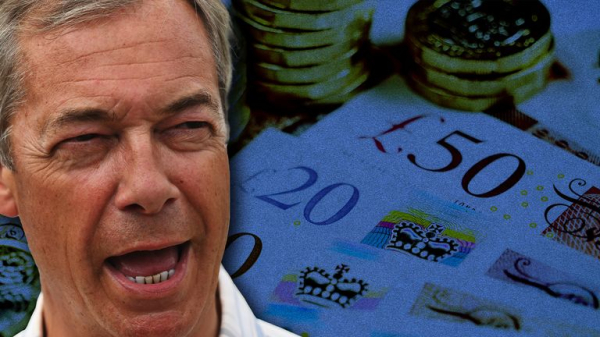
Nigel Farage’s bank account being closed has now led to a BBC apology and NatWest’s boss resigning.
How did we get here – and why was the account really closed?
Here’s how the controversy unfolded.
• Nigel Farage’s account is closed
At the end of June, Mr Farage said a bank – later confirmed as Coutts – had decided to stop doing business with him.
He said a letter from the bank contained no explanation and he had then been told over the phone it was a “commercial decision”.
In the six-minute video posted on Twitter, he said losing his bank account was the equivalent of being a “non person” and that the decision may “fundamentally affect [his] future career and whether [he] can even go on staying living here in this country”.
“The establishment are trying to force me out of the UK by closing my bank accounts,” the caption read.
Twitter This content is provided by Twitter, which may be using cookies and other technologies. To show you this content, we need your permission to use cookies. You can use the buttons below to amend your preferences to enable Twitter cookies or to allow those cookies just once. You can change your settings at any time via the Privacy Options. Unfortunately we have been unable to verify if you have consented to Twitter cookies. To view this content you can use the button below to allow Twitter cookies for this session only. Enable Cookies Allow Cookies Once
In a second Twitter video, he said he had been rejected from having bank accounts by nine different companies.
He said NatWest, the owner of Coutts, offered him an account after his announcement last week, but it was not suitable because it was a personal and not a business account.
Mr Farage claimed banks did not want him as a customer due to him being a “politically exposed person“, or PEP.
A PEP is someone who holds or has held public office and therefore may be more susceptible to bribery or corruption.
• BBC claims Farage didn’t have enough money
On 4 July, a BBC report claimed the bank did not want his custom because he did not have enough money in his accounts.
The prestigious private bank requires clients to have at least £1m in investments or borrowing – including a mortgage – or £3m in savings.
The BBC reported that Mr Farage’s political opinions were not a factor in the decision.
But it turned out this wasn’t the case.
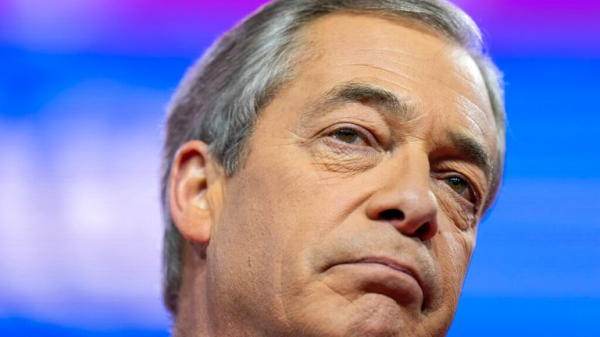
• Coutts’ dossier on Farage
After Coutts first told him they were cutting ties, Mr Farage submitted a subject access request to them.
He then received a 40-page document detailing all of the evidence Coutts accumulated about him to feed back to its Wealth Reputational Risk Committee.
It revealed staff at the bank spent months compiling evidence on the “significant reputational risks of being associated with him”.
The main risks were:
- Reputational – as Mr Farage is “high profile” and “actively courts controversy”Financial crime – due to “alleged Russia connections”
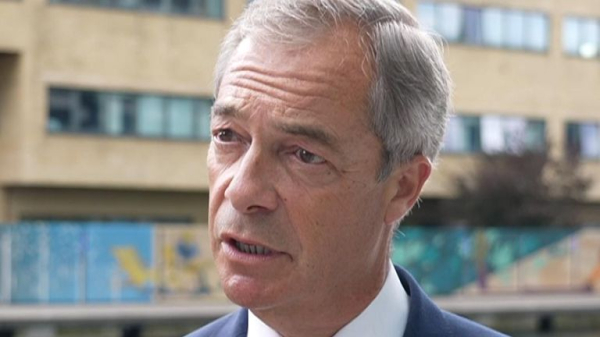
The document – reported on 18 July – suggested the move was taken partly because his views did not align with the firm’s “values”, including his position on LGBTQ+ rights and friendship with former US president Donald Trump.
Ultimately it concluded the Mr Farage’s views were “at odds with our position as an inclusive organisation”.
Prime Minister Rishi Sunak commented on the issue, tweeting: “This is wrong. No one should be barred from using basic services for their political views. Free speech is the cornerstone of our democracy.”
• The BBC apologises
On 24 July, the BBC issued an apology to Mr Farage over the story “which turned out not to be accurate”.
In a statement, the broadcaster said: “We acknowledge that the information we reported – that Coutts’ decision on Mr Farage’s account did not involve considerations about his political views – turned out not to be accurate and have apologised to Mr Farage.”
• NatWest boss resigns
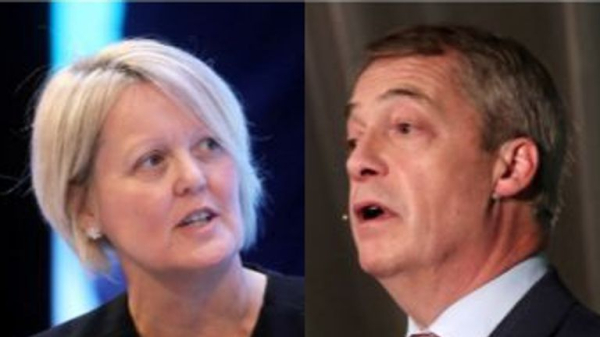
NatWest chief executive Dame Alison Rose resigned on 26 July after admitting to being the source of an inaccurate story about Mr Farage’s bank account.
The resignation was expected in the wake of briefings by Downing Street that she had lost the confidence of the prime minister and chancellor.
It came after she apologised to Mr Farage for the “deeply inappropriate comments” made about him in documents prepared for the company’s wealth committee.
She said the remarks “did not reflect the view of the bank”, which has now offered him “alternative banking arrangements”.
• 10 banks turned down Farage after Coutts closure
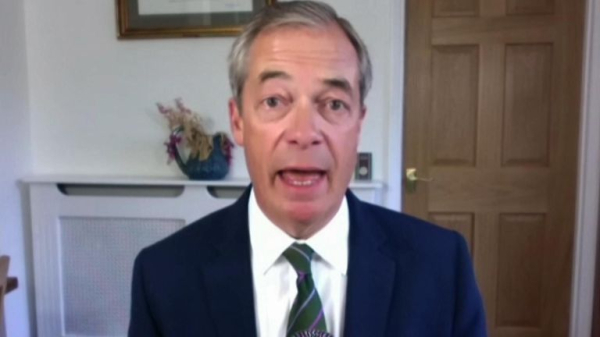
Speaking to Sky News after Dame Alison’s resignation, Mr Farage said 10 banks had turned him down after Coutts decided to close his account.
The former Brexit Party leader would not name the banks, but said: “I don’t want to take on the whole industry.”
“You can’t exist in the world without a bank account,” he said. “You effectively become a non-person.”
• What could happen next?
Banks face a Treasury clampdown in the wake of the row over Mr Farage’s account.
Lenders will be forced to give customers three months’ notice of account closures and to provide a full explanation of the reasons under reforms expected to be unveiled soon, Sky News understands.
